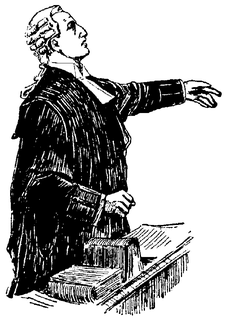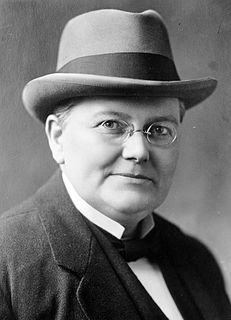
The Statute of Westminster 1931 is an act of the Parliament of the United Kingdom that sets the basis for the relationship between the Commonwealth realms and the Crown.

The Irish Free State was a state established in December 1922 under the Anglo-Irish Treaty of December 1921. The treaty ended the three-year Irish War of Independence between the forces of the Irish Republic – the Irish Republican Army (IRA) – and British Crown forces.

Éire is Irish for "Ireland", the name of both an island in the North Atlantic and the sovereign state of Ireland which governs 84% of the island's landmass. The latter is distinct from Northern Ireland, which covers the remainder of the northeast of the island. The same name is also sometimes used in English.

The Constitution of the Irish Free State was adopted by Act of Dáil Éireann sitting as a constituent assembly on 25 October 1922. In accordance with Article 83 of the Constitution, the Irish Free State Constitution Act 1922 of the British Parliament, which came into effect upon receiving the royal assent on 5 December 1922, provided that the Constitution would come into effect upon the issue of a Royal Proclamation, which was done on 6 December 1922. In 1937 the Constitution of the Irish Free State was replaced by the modern Constitution of Ireland following a referendum.

The title of Senior Counsel or State Counsel is given to a senior lawyer in some countries that were formerly part of the British Empire. "Senior Counsel" is used in current or former Commonwealth countries or jurisdictions that have chosen to change the title "Queen's Counsel" to a name without monarchical connotations, usually related to the British monarch that is no longer head of state, such that reference to the Queen is no longer appropriate. Examples of jurisdictions which have made the change because of the latter reason include Mauritius, Zambia, India, Hong Kong, Ireland, South Africa, Kenya, Malawi, Singapore, Guyana and Trinidad and Tobago. Jurisdictions which have retained the monarch as head of state, but have nonetheless opted for the new title include some states and territories of Australia, as well as Belize.

The Court of King's Bench was one of the senior courts of common law in Ireland. It was a mirror of the Court of King's Bench in England. The Lord Chief Justice was the most senior judge in the court, and the second most senior Irish judge under English rule and later when Ireland became part of the United Kingdom. Additionally, for a brief period between 1922 and 1924, the Lord Chief Justice of Ireland was the most senior judge in the Irish Free State.

The Great Seal of the Irish Free State is either of two seals affixed to certain classes of official documents of the Irish Free State :

The Supreme Court of Ireland is the highest judicial authority in Ireland. It is a court of final appeal and exercises, in conjunction with the Court of Appeal and the High Court, judicial review over Acts of the Oireachtas. The Supreme Court also has appellate jurisdiction to ensure compliance with the Constitution of Ireland by governmental bodies and private citizens. It sits in the Four Courts in Dublin.

Hugh Edward Kennedy was an Irish Cumann na nGaedheal politician, barrister and judge who served as Chief Justice of Ireland from 1924 to 1936, a judge of the Supreme Court from 1924 to 1936 and Attorney General of Ireland from 1922 to 1924. He served as a Teachta Dála (TD) for the Dublin South constituency from 1923 to 1924. As a member of the Irish Free State Constitution Commission, he was also one of the constitutional architects of the Irish Free State.

The current Constitution of Ireland came into effect on 29 December 1937, repealing and replacing the Constitution of the Irish Free State, having been approved in a national plebiscite on 1 July 1937 with the support of 56.5% of voters in the then Irish Free State. The Constitution was closely associated with Éamon de Valera, the President of the Executive Council of the Irish Free State at the time of its approval.

The Irish Free State Constitution Act 1922 was an Act of the Parliament of the United Kingdom, passed in 1922 to enact in UK law the Constitution of the Irish Free State, and to ratify the 1921 Anglo-Irish Treaty formally.

The Courts of Justice Act 1924 was an Act of the Oireachtas that established a new system of courts for the Irish Free State. Among the new courts was the Supreme Court of the Irish Free State, and the first Chief Justice of the Irish Free State was also appointed under the Act.
Capital punishment in the Republic of Ireland was abolished in statute law in 1990, having been abolished in 1964 for most offences including ordinary murder. The last person to be executed by the British state in Ireland was Robert McGladdery, who was hanged on 20 December 1961 in Crumlin Road Gaol in Belfast, Northern Ireland. The last person to be executed by the state in the Republic of Ireland was Michael Manning, hanged for murder on 20 April 1954. All subsequent death sentences in the Republic of Ireland, the last handed down in 1985, were commuted by the President, on the advice of the Government, to terms of imprisonment of up to 40 years. The Twenty-first Amendment of the constitution, passed by referendum in 2001, prohibits the reintroduction of the death penalty, even during a state of emergency or war. Capital punishment is also forbidden by several human rights treaties to which the state is a party.
Feminism in Ireland has played a major role in shaping the legal and social position of women in present-day Ireland. The role of women has been influenced by numerous legal changes in the second part of the 20th century, especially in the 1970s.
The crime of treason is defined by Article 39 of the Constitution of Ireland, adopted in 1937, which states:
Treason shall consist only in levying war against the State, or assisting any State or person or inciting or conspiring with any person to levy war against the State, or attempting by force of arms or other violent means to overthrow the organs of government established by the Constitution, or taking part or being concerned in or inciting or conspiring with any person to make or to take part or be concerned in any such attempt.
The Constitution Act 1933 was an Act of the Oireachtas of the Irish Free State amending the Constitution of the Irish Free State which had been adopted in 1922. It abolished the right of appeal from the Supreme Court of the Irish Free State to the Judicial Committee of the Privy Council. It was part of a series of constitutional changes the Fianna Fáil government led by Éamon de Valera had initiated after coming to office in 1932 which reduced the connections between the Irish Free State and the United Kingdom.
The Constitution Act 1936 was an Act of the Oireachtas of the Irish Free State amending the Constitution of the Irish Free State which had been adopted in 1922. It abolished the two university constituencies in Dáil Éireann.

State (Burke) v. Lennon [1940] IR 136 was a landmark case during a transitional time for the Constitution of Ireland. It took place from 28 November 1939 to 9 February 1940. This case examined an "internment without trial" under the 1939 Offences against the State Act in the context habeas corpus, article 40.4 of the Irish Constitution. It was a landmark decision in establishing the power of the judiciary to declare legislation unconstitutional. In a case before the High Court, the judge George Gavan Duffy held the decision that internment without trial when ordered by a minister was inconsistent with the right "not to be deprived of personal liberty save in accordance with the law" of article 40.4 On appeal by the government, the Supreme Court of Ireland upheld Duffy's decision.
Until 1933, Article 66 of the Constitution of the Irish Free State permitted appeals of decisions of the Supreme Court of the Irish Free State to be made to the Judicial Committee of the Privy Council (JCPC) in London. This was a requirement of the Anglo-Irish Treaty of 1921, which underpinned the creation of the Irish Free State. The treaty specified that the Free State's constitutional status would be the same as Canada, another British Dominion, whose local courts allowed further appeal to the JCPC.
The Central Fund is the main accounting fund used by the government of Ireland. It is a bank account held at the Central Bank of Ireland, managed by the Minister for Finance as head of the Department of Finance. It is informally called the exchequer by analogy with the UK Exchequer.












